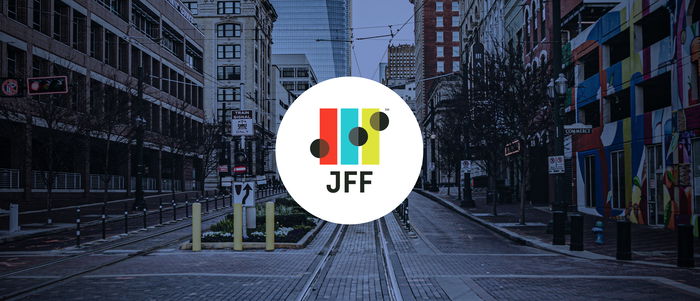
We Need to Be Working for Workers Every Day
September 4, 2020
At a Glance
At JFF, we’re observing this Labor Day with a new sense of gravity—and we’re renewing our commitment to building a society where everyone can advance economically.
Labor Day lost its meaning to many Americans long ago. The holiday created to celebrate workers and their fight for safe working conditions and enough pay to feed their families is now more commonly seen as an occasion that marks the end of summer and the start of school.
Today’s social and economic reality imbues this Labor Day with a new sense of gravity and urgency. The pandemic’s precipitous and prolonged impact on workers, coupled with the nation’s reckoning with racial injustice, are an eerie reflection of the holiday’s origins. Too many people—particularly the poor, a disproportionate number of Black Americans, and recent immigrants—are working for meager wages, often in unhealthy conditions. Meanwhile, unemployment continues at distressing levels, with about 30 million people out of work.
The pandemic’s precipitous and prolonged impact on workers, coupled with the nation’s reckoning with racial injustice, are an eerie reflection of the holiday’s origins.
At JFF, we mark this Labor Day with a renewed resolve to fulfill our mission of building a society where every person has access to the skills, resources, and credentials they need to achieve economic advancement and where employers get the skilled workers they need.
We do this with humble recognition of the courage and resilience of American workers. And we express gratitude to our many partners in the field—educators, corporations, government leaders, community-based organizations, and philanthropies—that are addressing the urgent needs of millions of people most impacted by the crises while trying to make systemic changes that will lead to an equitable economic recovery.
Join us and SkillUp on Twitter throughout the Labor Day weekend to continue the conversation about #WorkingForWorkers.
Join us and SkillUp on Twitter throughout the Labor Day weekend to continue the conversation about #WorkingForWorkers. SkillUp is a coalition that is building an upskilling solution to help America’s laid-off and furloughed workers access the training and employment opportunities they need to secure a place in the economy of the future. We’ll focus on what we can all do together to honor workers of the past and present.
Retweet our tweet by clicking below. Or share how you and your organization are working for workers by using the #WorkingForWorkers hashtag on social media.
JFF Is Committed to Work for Workers in the Following Ways:
- We’re #WorkingForWorkers so they can rely on a more equitable workforce system that better prepares them for the jobs of tomorrow.
- We’re #WorkingForWorkers so that education providers can help them benefit from continuous learning, often with support from an employer.
- We’re #WorkingForWorkers to establish a level playing field for all of America’s workers by prioritizing the growing need for skills-based hiring and work-based learning.
- We’re #WorkingForWorkers so that technology creates jobs instead of replacing them.
- We’re #WorkingForWorkers to ensure corporations prioritize worker well-being—especially those directly impacted by the pandemic—so that all can recover stronger in a shifting labor market.
Related Content

Financing the Future
JFF’s Financing the Future initiative reimagines the way we finance education and skills development. JFF’s Financing the Future initiative reimagines the way we finance education and skills development. Our team is made up of individuals…

Center for Apprenticeship & Work-Based Learning
This tried-and-true training model has been around for so long because it works. JFF is a leader in expanding apprenticeship and work-based learning to new industries and professions. This tried-and-true training model has been around…

Recover Stronger
We’re bringing together America’s largest companies in a shared commitment to embracing business values and practices that prioritize the economic well-being and mobility of their people. Join us to #RecoverStronger. Corporate Coalition Our Recover Stronger…
